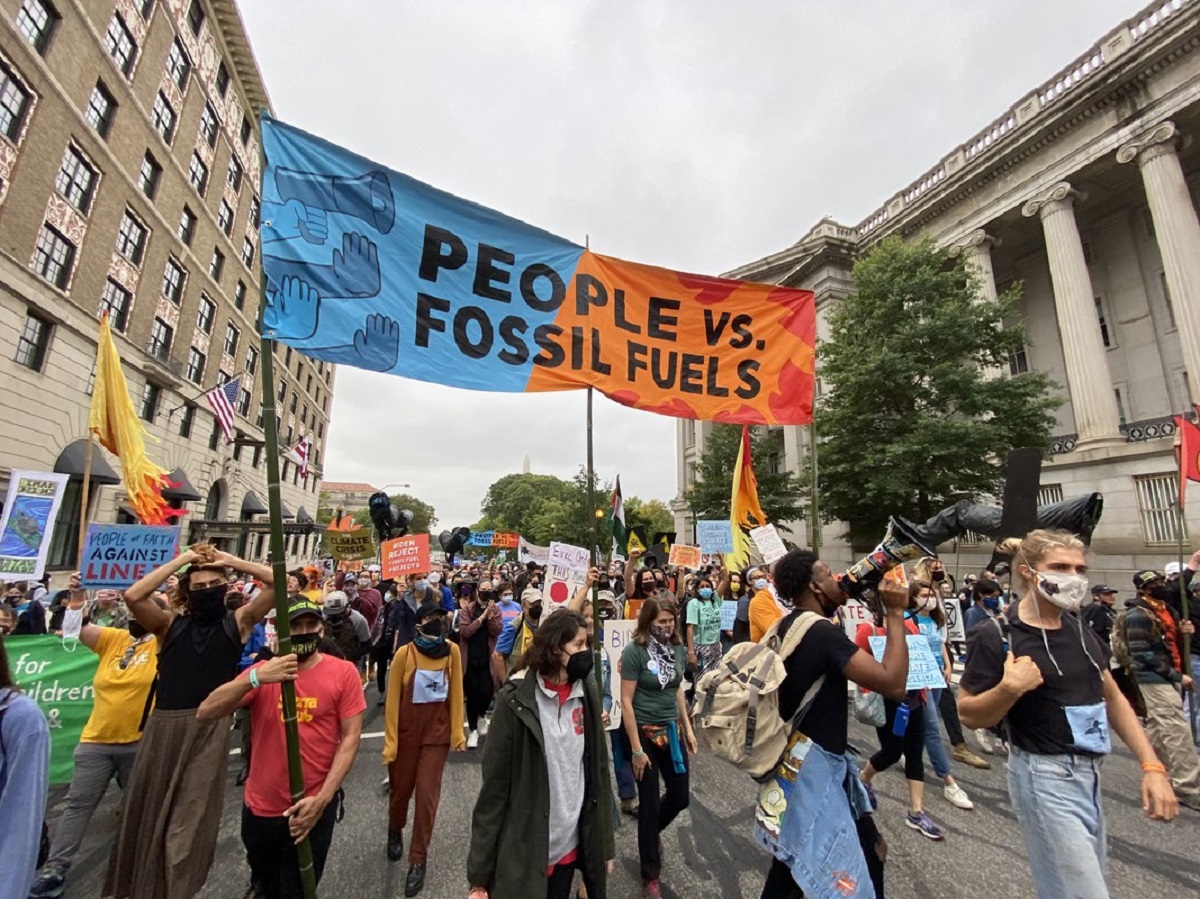In May, Sierra magazine wrote that “Jordan Cove, the controversial pipeline and liquefied natural gas (LNG) export facility proposed for southwest Oregon, is dead—again. Probably. For now.” Last week, it was officially canceled—for certain, for good—when developer Pembina filed a formal request asking the Federal Energy Regulatory Commission (FERC) to cancel its permit for the project.
Jordan Cove’s cancelation follows more than a decade of opposition from a broad coalition of Oregonians, including environmental activists, rural landowners, and Tribes. This diverse group was united by its concerns about risks to health and safety, climate change, environmental impacts, landowner rights, impacts on Indigenous communities, and the need to shift to clean energy instead of expanding fossil fuel use.
If built, Jordan Cove would have become the largest single emitter of carbon pollution in Oregon, exacerbating the climate crisis that is already causing record heat waves, devastating fires, and public health problems across the state. All told, more than 50,000 Oregonians filed comments with state agencies opposing the project. Tens of thousands attended public hearings over the past several years to express their opposition.
“We’re in awe of the organizing that went into this victory,”said a representative from Siskiyou Rising Tide, a local group active in the fight against Jordan Cove. The coalition “has overcome many challenges, including battling against multinational corporate interests, and politically motivated FBI surveillance. As the effects of climate change become more real with each new fire season, we’re also seeing what’s possible when we work together for change.”
Jordan Cove is only the latest in a series of fracked gas projects that are facing setbacks because of widespread community opposition and a growing awareness of the climate impacts of fracked gas, which primarily consists of methane—a greenhouse gas at least 80 times more potent than carbon dioxide. Just two days after Jordan Cove’s cancelation, another beleaguered fracked gas project, the Mountain Valley Pipeline, was denied a key permit. Without it, the Mountain Valley Pipeline and its Southgate extension are unlikely to ever be built. This spring, Annova LNG, a fracked gas export terminal slated to be built on Texas’s Gulf Coast, was also canceled. This summer, the companies behind two other Gulf Coast export terminals, Rio Grande LNG and Texas LNG, were ordered to redo their inadequate analysis of the climate and environmental justice impacts of the projects.
The Sierra Club and its partners will continue to oppose fracked gas projects everywhere they are proposed, from the West Coast to the Gulf Coast. These projects inevitably pose major risks to Indigenous rights, wildlife, and our climate, as well as to the communities nearby, which are often communities of color or low-income communities already impacted by multiple sources of pollution. These fracked gas projects should never be built—especially because affordable clean energy is available right now.
“While these ‘David vs. Goliath’ battles to protect our environment and climate from the fossil fuel industry often start with what feel like very long odds,” says Daniel E. Estrin, General Counsel and Advocacy Director for Waterkeeper Alliance, “We see time and again that when communities stand up and arm themselves with the law and science to fight for what’s right, we often beat those long odds.”
